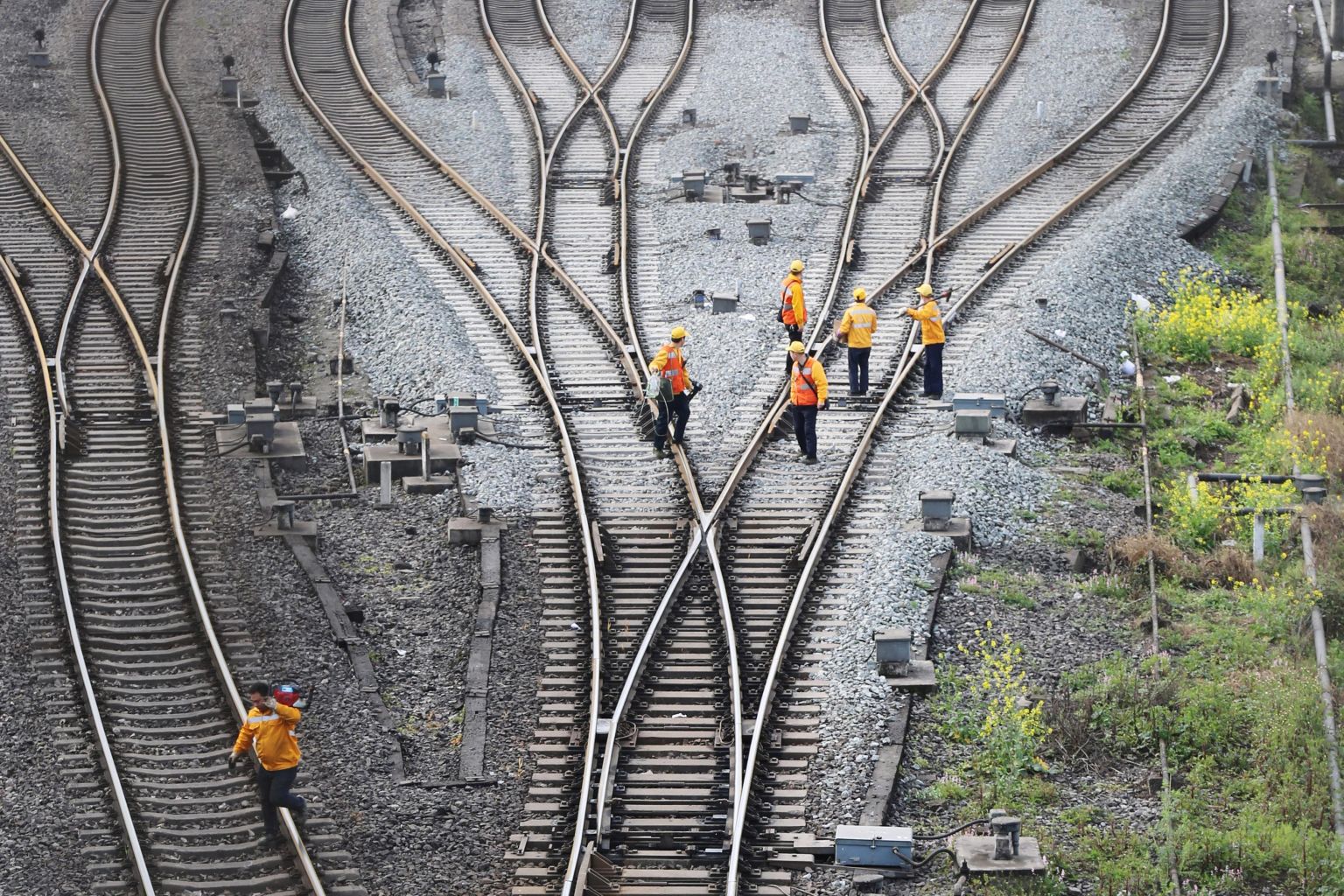China moves to define 'Belt and Road' projects for first time
Sign up now: Get insights on Asia's fast-moving developments

Workers inspect railway tracks, which serve as a part of the Belt and Road freight rail route linking Chongqing to Duisburg, on March 14, 2019.
PHOTO: REUTERS
BEIJING (BLOOMBERG) - China is drafting rules for overseas investments to be considered part of President Xi Jinping's Belt and Road Initiative, according to people familiar with the matter, marking the first attempt to better define his signature policy.
The plan, which isn't yet final, aims to stop companies from misusing the label "Belt and Road Initiative", said the people, who asked not to be named because the discussions were private.
Unchecked use of the name on projects has created confusion about the initiative's scope and damaged its reputation abroad, they said.
One of the people said the National Development and Reform Commission, or NDRC, is working on a list of legitimate Belt and Road Initiative projects officially acknowledged by the Chinese government.
It would include both state-owned enterprises and private companies, helping the authorities improve regulation of projects, the person said.
The NDRC and foreign ministry didn't immediately reply to faxed questions.
China is working to counter growing criticism of Mr Xi's signature programme as concerns grow that increased debt burdens would leave governments vulnerable to Beijing's broader strategic goals.
United States Vice-President Mike Pence warned Asia-Pacific countries in November against taking China's money, adding that the US wouldn't "offer a constricting belt or a one-way road".
Governments around Asia are reassessing Chinese investments. Malaysia is in talks with China on a reduced price tag for a US$20 billion (S$27 billion) rail project it scrapped after Prime Minister Mahathir Mohamad took power.
Myanmar scaled back a port deal struck under its previous military regime, while heavily indebted Maldives booted out a pro-China administration last year.
Mr Xi, who is preparing to host more than 40 world leaders at the second Belt and Road Forum in Beijing in late April, has even seen recent successes tainted by scepticism.
A memorandum of understanding signed last month with Italy - the first Group of Seven nation to join the programme - led Deputy Premier Matteo Salvini to caution that it risked "colonising Italy".
Mr Xi unveiled his "project of the century" to rebuild ancient trading routes across Eurasia in 2013, and China's government has since poured billions into his plan from Africa to the South Pacific. But uncertainty remains about what projects are considered part of the Belt and Road Initiative, turning it into a catch-all for everything Chinese investors do overseas.
"The BRI is better understood as a mission statement rather than a policy document, since it lacks a list of member countries and a precise definition of what a BRI project is," according to a 2017 report from law firm Baker McKenzie.
China has sought to emphasise diversified participation and offered billions in debt relief to African countries in a bid to counter criticism that the programme's focus is on spreading Mr Xi's influence.
"Belt and Road is an initiative for economic cooperation - instead of a geopolitical alliance or military league - and it is an open and inclusive process rather than an exclusive bloc or 'China club,"' Mr Xi told a symposium marking the programme's fifth anniversary in August.


